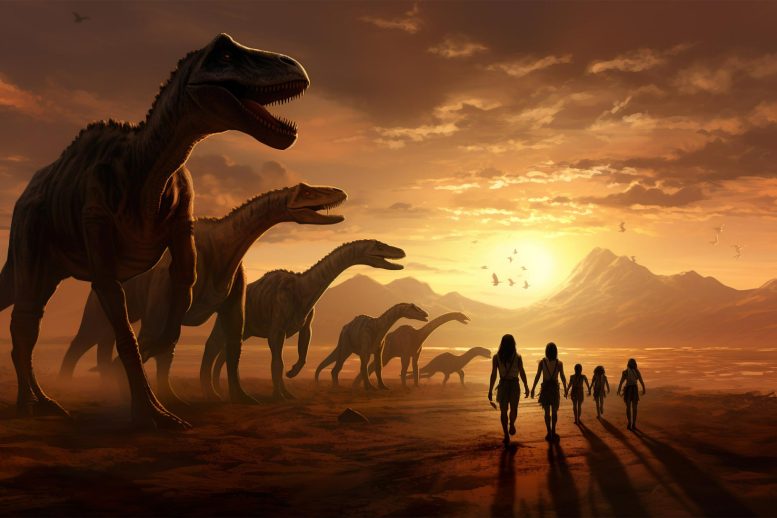
A Cretaceous origin for placental mammals, the group that includes humans, dogs, and bats, has been revealed by in-depth analysis of the fossil record, showing they co-existed with dinosaurs for a short time before the dinosaurs went extinct.
The catastrophic destruction triggered by the asteroid hitting the Earth resulted in the death of all non-avian dinosaurs in an event termed the Cretaceous-Paleogene (K-Pg) mass extinction. Debate has long raged among researchers over whether placental mammals were present alongside the dinosaurs before the mass extinction, or whether they only evolved after the dinosaurs were done away with.
Fossils of placental mammals are only found in rocks younger than 66 million years old, which is when the asteroid hit Earth, suggesting that the group evolved after the mass extinction. However, molecular data has long suggested an older age for placental mammals.
In a new paper published in the journal Current Biology, a team of palaeobiologists from the University of Bristol and the University of Fribourg used statistical analysis of the fossil record to determine that placental mammals originated before the mass extinction, meaning they co-existed with dinosaurs for a short time. However, it was only after the asteroid impact that modern lineages of placental mammals began to evolve, suggesting that they were better able to diversify once the dinosaurs were gone.
The researchers collected extensive fossil data from placental mammal groups extending all the way back to the mass extinction 66 million years ago.
Lead author Emily Carlisle of Bristol’s School of Earth Sciences said: “We pulled together thousands of fossils of placental mammals and were able to see the patterns of origination and extinction of the different groups. Based on this, we could estimate when placental mammals evolved.”
Co-author Daniele Silvestro (University of Fribourg) explained: “The model we used estimates origination ages based on when lineages first appear in the fossil record and the pattern of species diversity through time for the lineage. It can also estimate extinction ages based on last appearances when the group is extinct.”
The Role of Mass Extinction Events in Mammalian Evolution
Co-author Professor Phil Donoghue, also from Bristol, added: “By examining both origins and extinctions, we can more clearly see the impact of events such as the K-Pg mass extinction or the Paleocene-Eocene Thermal Maximum (PETM).”
Primates, the group that includes the human lineage, as well as Lagomorpha (rabbits and hares) and Carnivora (dogs and cats) were shown to have evolved just before the K-Pg mass extinction, which means our ancestors were mingling with dinosaurs. After they survived the asteroid impact, placental mammals rapidly diversified, perhaps spurred on by the loss of competition from the dinosaurs.
Reference: “A timescale for placental mammal diversification based on Bayesian modeling of the fossil record” by Emily Carlisle, Christine M. Janis, Davide Pisani, Philip C.J. Donoghue and Daniele Silvestro, 27 June 2023, Current Biology.
DOI: 10.1016/j.cub.2023.06.016
This work was carried out using the computational facilities of the Advanced Computing Research Centre, University of Bristol.
Never miss a breakthrough: Join the SciTechDaily newsletter.
6 Comments
It is nothing new that our distant ancestors of primates existed with dinosaurs and survived the extinction event. The article is guilty of a bit of foolish sensationalism over nothing.
“ Shocking Study: Humans’ Ancestors Lived Among Dinosaurs and Survived Asteroid Strike”
The headline crumbles with even the lightest application of critical thought. Does its author think it that science readers believed in some independent origin for mammalian life? I’ll pass on this site as a serious source from now on.
Or…What Frank said.
LUCA is a human ancestor. Can you be a bit more specific please? Article title would be much less misleading if it went like: “discovered cretaceous origin of placentals”
I can already see Creationists showing the picture that accompanies this article and claiming: “Sci Tech Daily shows humans living along dinosaurs!”
Really?? Publishing that people alone should get your science credentials invalidated, much less the misleading headline!
How does this differ from established theory that life evolved from single celled organisms? Of course the ancestors to human life existed.